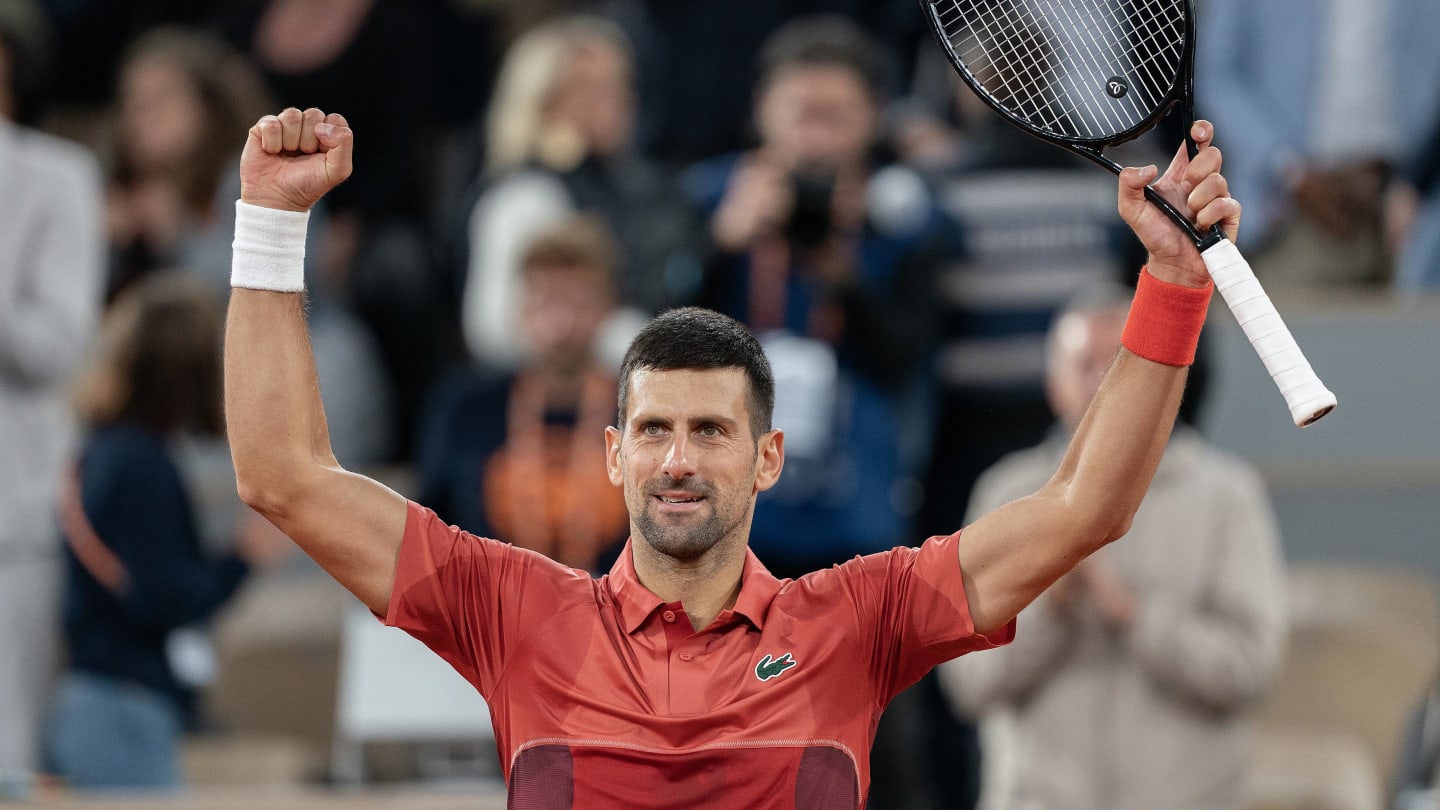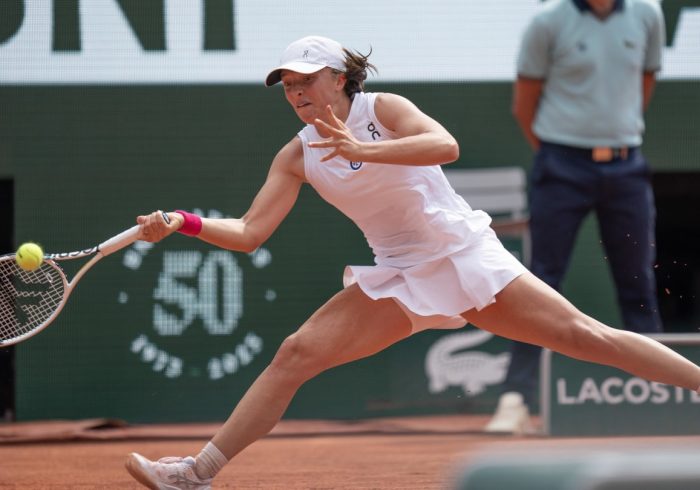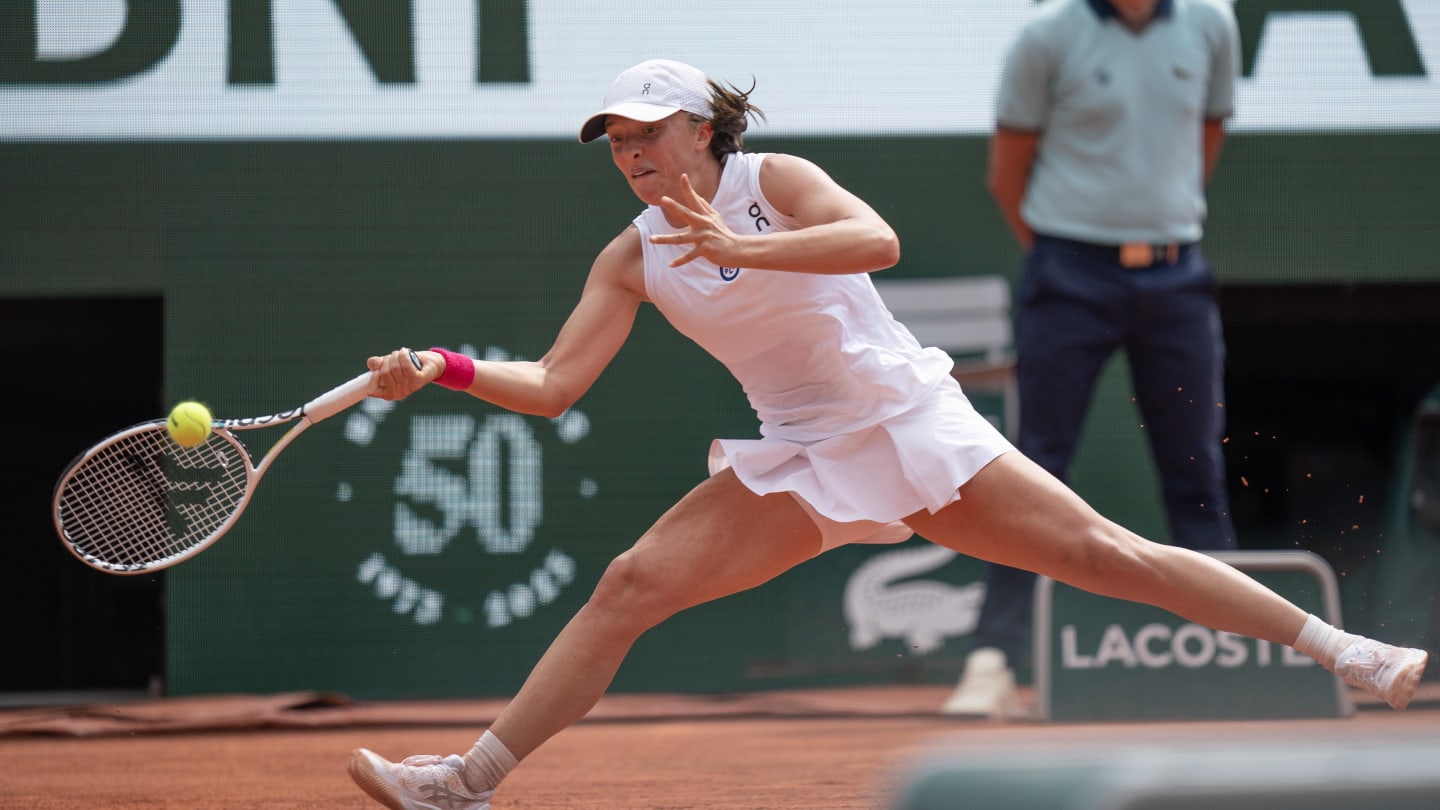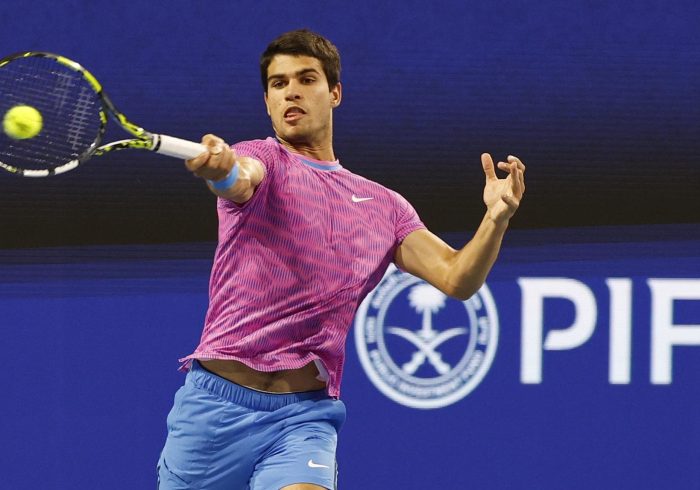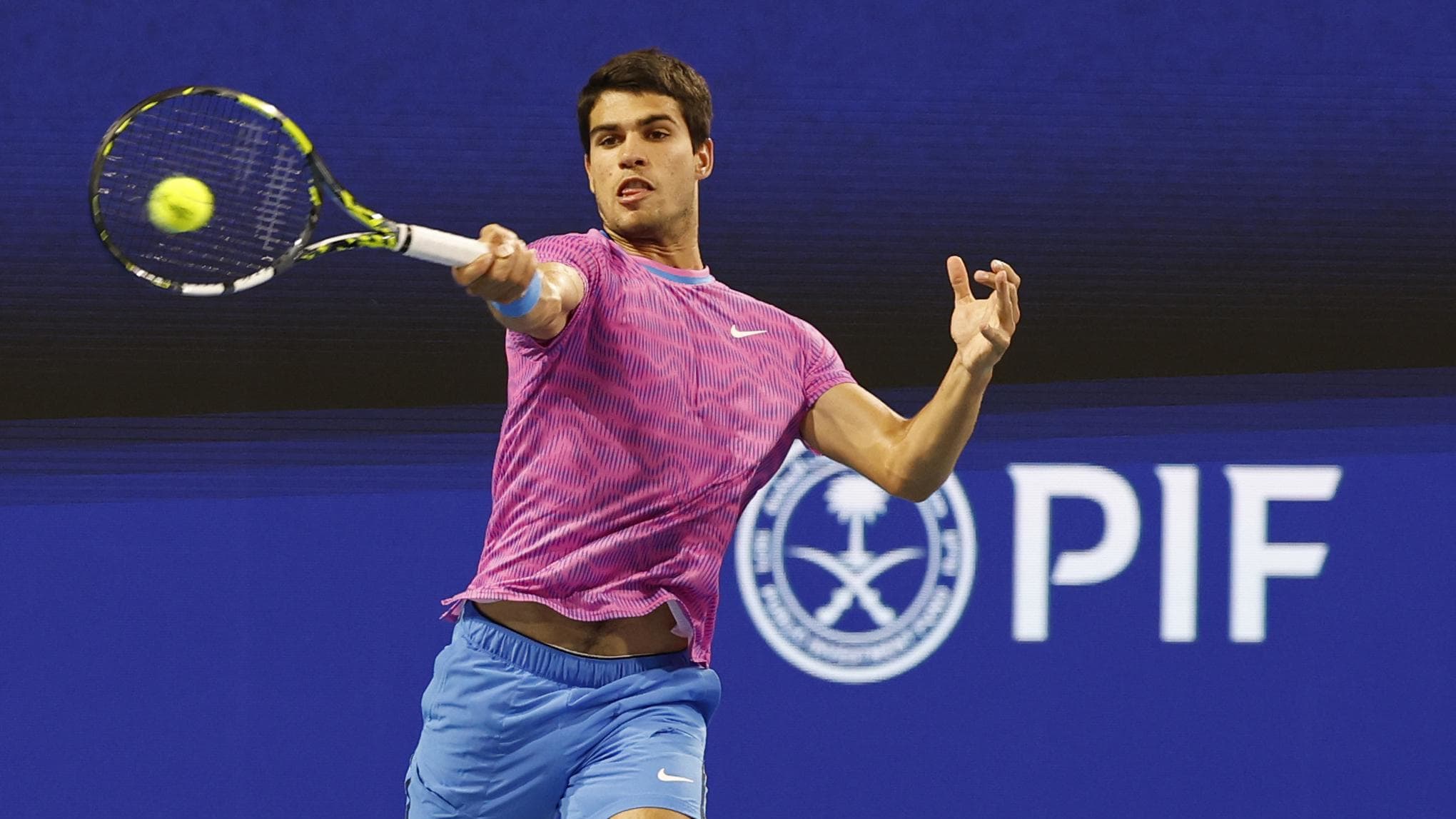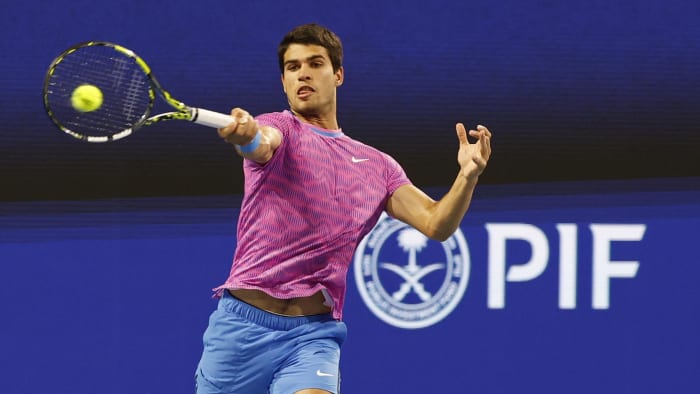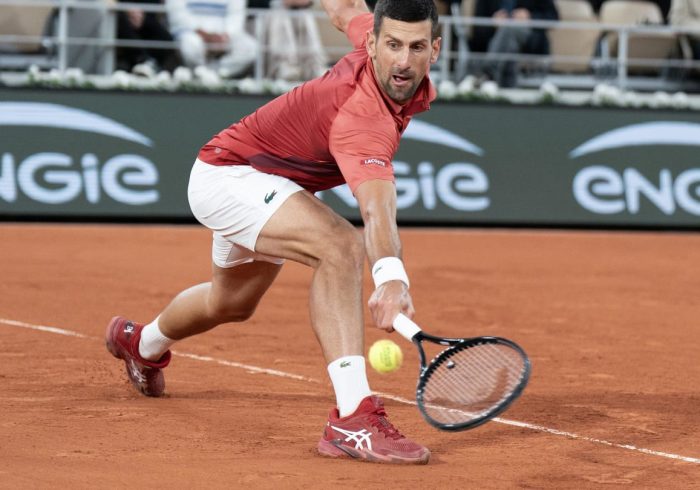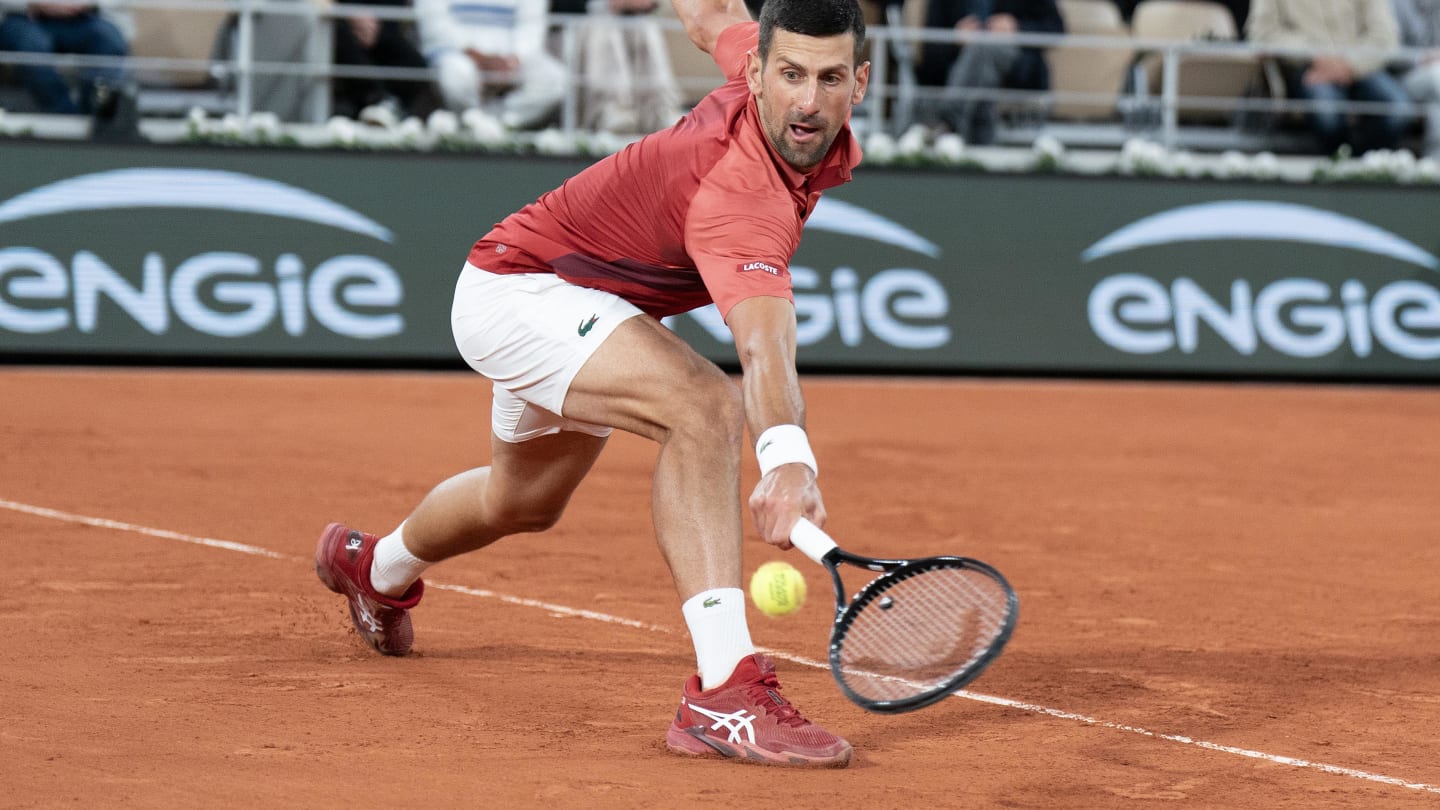Novak Djokovic faced quite a difficult test during his fourth round match at the French Open on Monday.
The World No. 1 defeated No. 23 Francisco Cerúndolo after being down 2–1 sets in a five-set thriller, 6–1, 5–7, 3–6, 7–5, 6–3. The match lasted four hours and 39 minutes.
Djokovic was close to losing the match in the fourth set as Cerúndolo held a 4–2 lead. The 24-time Grand Slam champion came back to tie 4–4, then eventually won the set. This momentum propelled him to victory in the final set.
With this win, Djokovic also made tennis history by surpassing Roger Federer for the most Grand Slam match wins in history.
Back to back five set victories! 💥 @DjokerNole fights past Francisco Cerundolo 6-1, 5-7, 3-6, 7-5, 6-3 to reach the final 8 in Paris. #RolandGarros pic.twitter.com/iEeB1e9mRO
— Tennis Channel (@TennisChannel) June 3, 2024
Monday’s fourth round match was reminiscent of Djokovic’s third round match, which he also won in five sets. Djokovic won the first set vs. Lorenzo Musetti, then dropped the next two before winning the final two sets. It’s been a long week for Djokovic on the court, to say the least.
The fourth round win didn’t come without other obstacles, too. The 37-year-old appeared to injure his knee in the second set, which caused him to plead for the grounds crew to sweep the court more often. The umpire denied his request.
The reigning French Open champion now awaits the winner of the match between Casper Ruud and Taylor Fritz.
